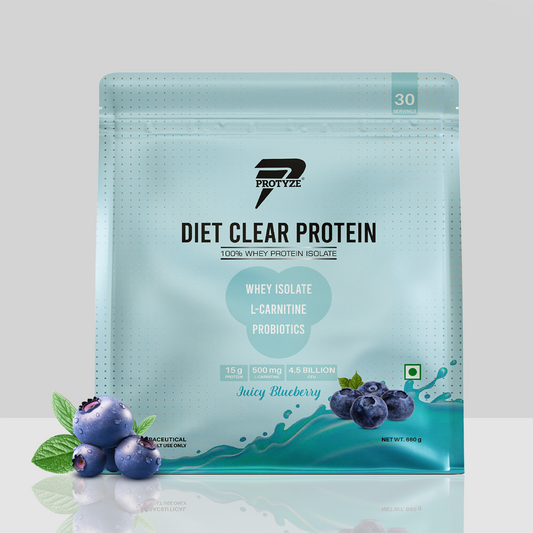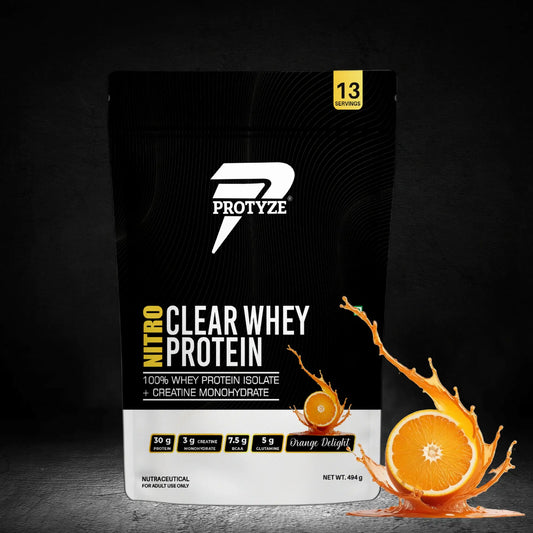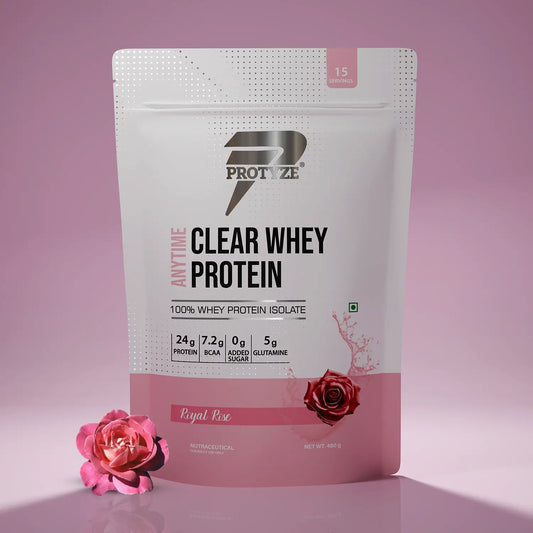Your gut is like the engine of your body—when it’s healthy, everything else runs smoothly. From better digestion to stronger immunity and even improved energy levels, gut health has a huge impact on how you feel every day. And one of the simplest ways to keep your gut in top shape is by eating enough dietary fibre.
Fibre doesn’t just help with digestion—it feeds the good bacteria in your gut, keeps you regular, and even supports your immune system. The best part? You don’t need fancy superfoods to get it. Everyday staples like whole grains, fruits, veggies, nuts, and legumes are already packed with fibre your gut will love.
In this article, we’ll explore the best natural sources of dietary fibre, how it helps your digestion and immunity, and why pairing it with the right protein (like Protyze Diet Clear Whey with probiotics) can be a game-changer for long-term gut health.
What is Dietary Fibre?
Dietary fibre is a type of carbohydrate that your body cannot digest. Instead of breaking down into sugar, fibre moves through your digestive system and supports gut health in two key ways:
-
Soluble fibre: Dissolves in water and forms a gel-like substance that slows digestion, stabilises blood sugar, and feeds good gut bacteria.
-
Insoluble fibre: Adds bulk to stool, prevents constipation, and helps things move smoothly through your intestines.
Both are important for a strong digestive system.
Best Natural Sources of Dietary Fibre
Here are some of the richest and most accessible fibre sources you can include in your daily diet:
1. Whole Grains
Brown rice, oats, quinoa, and whole wheat are excellent sources of fibre. They keep you fuller for longer and improve digestion.
2. Legumes
Beans, lentils, and chickpeas are loaded with fibre and also provide plant-based protein. They are especially beneficial for gut bacteria, which thrive on fermenting fibres from legumes.
3. Fruits
Apples, pears, bananas, berries, and oranges are packed with soluble fibre. Eating fruits with their peel (where possible) gives you even more fibre.
4. Vegetables
Leafy greens, carrots, broccoli, and sweet potatoes are rich in insoluble fibre, helping keep your digestive system regular.
5. Nuts and Seeds
Almonds, flaxseeds, chia seeds, and sunflower seeds provide both fibre and healthy fats—making them excellent for gut and heart health.
How Fibre Supports a Healthy Gut
-
Feeds good bacteria: Soluble fibre acts like a prebiotic, nourishing the beneficial bacteria in your gut.
-
Improves digestion: Insoluble fibre prevents constipation and supports bowel regularity.
-
Boosts metabolism: A healthy gut helps in better absorption of nutrients and energy use.
-
Strengthens immunity: Around 70% of the immune system lies in the gut, so fibre indirectly supports stronger immunity.
Fibre and Protein: A Perfect Combination for Gut Health
Fibre is great for digestion, but pairing it with the right protein ensures your muscles and overall body also get the nourishment they need. This is where functional protein supplements come in.
For example, Protyze Diet Clear Whey Protein is designed with probiotics in addition to protein. Probiotics support gut health by balancing the intestinal bacteria, while the protein supports muscle recovery and daily nutrition. Together with a fibre-rich diet, this creates a strong base for better digestion, energy, and performance.
Final Thoughts
Dietary fibre is more than just a nutrient for digestion—it’s the foundation of a healthy gut and overall well-being. By including a mix of whole grains, legumes, fruits, vegetables, nuts, and seeds, you can easily meet your fibre needs.
Pair this with smart supplements like Protyze Diet Clear Whey Protein, which adds probiotics for gut health, and you have a simple, powerful formula for long-term health.
Eat balanced, nourish your gut, and let your body thrive.





